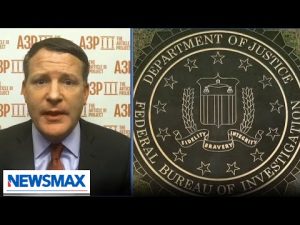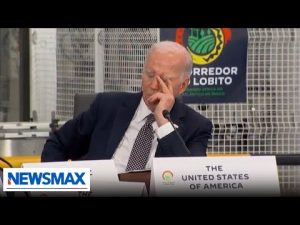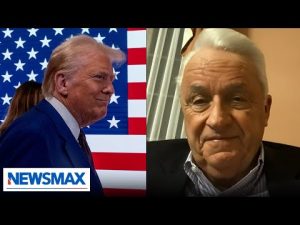In the ever-changing realm of international diplomacy, former President Donald Trump appears to be making waves again, especially with his bold vision for Gaza. Recent discussions about the delicate situation in the Middle East have drawn attention to his ability to engage with leaders across the globe. Congressman Andy Biggs, a Republican from Arizona and a member of the House Judiciary Committee, shared his insights about this complex humanitarian and political landscape.
Trump’s intimate ties with King Abdullah of Jordan seem to have allowed him to foster dialogue in regions where others have struggled. Congressman Biggs pointed out that under the prior administration, diplomatic efforts were often at a standstill. While current discussions hint at a potential shift in fortunes for Gaza, Trump’s approach to negotiation could pave the way for more hopeful outcomes, even if they appear ambitious at first glance. The key lies in the relationships he forms with various leaders, wrapping them into a coalition that could make the unthinkable possible.
In a noteworthy turn, Trump has begun to challenge the narrative surrounding Gaza’s rehabilitation, a prospect many believed was off the table. Congressman Biggs emphasized this impressive maneuvering, highlighting that Trump is not afraid to directly confront adversarial forces such as Hamas. The former president’s candid descriptions of the conflict, calling Hamas “bullies,” seems to resonate with an audience seeking clarity and strength in leadership. Billions of dollars in aid and support might be at stake, but the seriousness of the situation makes every diplomatic engagement crucial.
However, time is of the essence. With looming deadlines for hostage negotiations involving Iran, Congressman Biggs conveyed a sense of urgency that should not be overlooked. The stakes are considerably high, with over four hundred hostages still in captivity. Should these negotiations stall, it could prompt a dramatic response from the United States, evoking memories of what former President Bush termed “shock and awe.” The hope remains that through diplomatic pressure, including international condemnation, reason may prevail.
Back on the domestic front, Biggs is also focusing on regulatory reforms that could ease the burdens placed on Americans by the current administration. Among his initiatives is a bill that seeks to dismantle OSHA, an agency he claims has become an overbearing presence in the lives of workers. Citing that the Biden administration has imposed thousands of regulations costing taxpayers over a trillion dollars in just four months, Biggs aims to streamline the legislative review process for these regulations. His assertion that states have proven more effective at managing safety standards only enhances his argument for less federal intervention.
In the whirlwind of political activity both internationally and domestically, it is clear that the coming days will be pivotal for the future of U.S. relations in the Middle East and the regulatory landscape at home. Congressman Biggs remains determined to push for changes that prioritize American interests, and with leaders like Trump advocating for bold action overseas, the Republican Party is gearing up for significant discussions ahead. As the world watches, the key players in Washington are set to navigate a complex web of negotiations and reform that could reshape both foreign and domestic policies for years to come.



